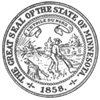Eligibility and General Requirements
Click the topics below for more information.
Expand all
If you obtained your MPRE score before 1999, you may provide the score report from your files or by verification through a jurisdiction to which you previously submitted your score. The jurisdiction must be able to either provide your score or confirm that an 85 or higher would have been required for your admission to that jurisdiction.
a) Graduation with a J.D. degree from a law school that is provisionally or fully approved by the American Bar Association;
b) (i) a bachelor’s degree from an institution that is accredited by an agency recognized by the United States Department of Education or foreign equivalent;
(ii) a J.D. degree or equivalent from a law school attended following completion of undergraduate studies;
(iii) the applicant has been licensed to practice law in any state or territory of the United States or the District of Columbia in 60 of the previous 84 months; and
(iv) the applicant has been engaged, as principal occupation, in the practice of law for 60 of the previous 84 months in one or more of the activities listed in Rule 7A(1)(C); or
c) the applicant has been licensed to practice law in any state or territory of the United States or the District of Columbia for at least 10 years.
Applicants who are eligible only under Rule 4A(3)(b) must apply under Rule 6 to take the Minnesota bar exam, and must have their eligibility confirmed by the Board before being permitted to sit for the exam. The Board recommends that any such applicants apply for an exam date that is at least six months out from the date on which they apply.
Some documents require a PDF reader to view properly.

